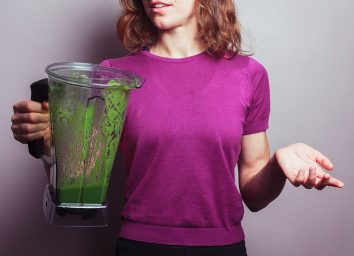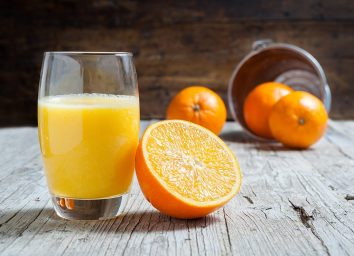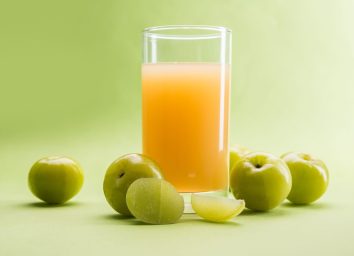One Major Effect of Drinking Cranberry Juice, New Study Says

For years, you've probably heard that cranberry juice is good for your urinary health (which is true), or even that it's beneficial to your gut health (also demonstrated to be accurate). Now, an intriguing study has uncovered yet another advantage of drinking the juice of this tart little berry. Keep reading—this might make you smile.
A study published June 28 in the peer-reviewed journal Beverages found, to put it scientifically, that "Polyphenols in edible berries and tea plant (Camellia sinensis) suppressed virulence factors of oral pathogens." To break that down, a team of researchers from the University of Illinois at Chicago's School of Dentistry has found that juice from some berries that are high in antioxidants, such as cranberry juice, may inhibit the growth of bacteria that cause tooth decay.
Specifically, the team set out to see whether there was any effect on pediatric dental health from packaged teas and juice beverages. To investigate this, they collected plaque from above the gumlines of 16 children between ages seven and 11 years. Then, they administered a variety of 26 "packaged teas, ready-to-drink bottled raspberry flavored teas and cranberry juice cocktails with and without added sugars."
Indeed, when they took another plaque sample after 24 to 48 hours, they discovered that some of these drinks demonstrated an effect in inhibiting the growth of Streptococcus mutans, a bacterium that's known to be a significant contributor to tooth decay, and supragingival plaque bacteria, which is linked to plaque formation.
Cranberry juice drinks appeared to be among the most powerful at keeping these bacteria at bay, as brands like Ocean Spray Cranberry Juice Cocktail, Ocean Spray Diet Cranberry, and Simply Cranberry were shown to reduce more than 90 percent of growth and biofilm formation of Streptococcus mutans.
As a result, the researchers suggest that switching children from sodas to these types of juice drinks is better for their dental health—they say: "Beverages rich in antimicrobial plant polyphenols reduce plaque adherence, may benefit oral health and are preferred over other sugary beverages. The concept of oral diseases prevention using natural foods/diet is innovative, practical and acceptable."
How's that for news the whole family can drink to?
Sign up for the Eat This, Not That! newsletter for more food and nutrition news, and keep reading:








